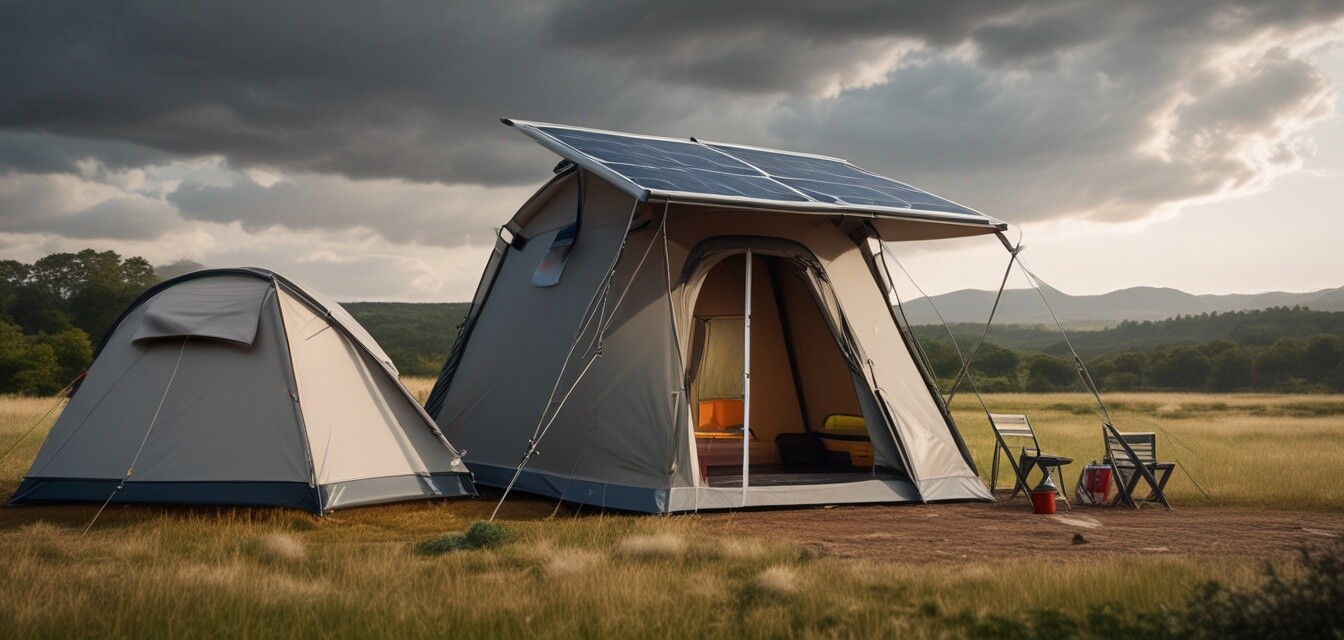
Tips for Successfully Using Solar in Overcast Conditions
Key Takeaways
- Understanding how solar panels work can help you maximize efficiency.
- Regular maintenance is key to ensuring optimum performance.
- Positioning your solar panels correctly can make a big difference.
- Consider integrating other energy solutions for backup power.
- Plan your usage especially during periods of low sunlight.
When you're out camping, the last thing you want is to run out of power, especially on those overcast days when the sun seems hidden. Utilizing solar power successfully in low-light conditions can be challenging but with the right strategies, it’s absolutely possible. This article will provide you with expert tips for maximizing solar usage during cloudy or low-light situations.
Understanding Solar Panel Efficiency
Solar panels generally work by converting light into electricity. However, their efficiency can diminish under cloudy skies. Here’s what you need to know about solar panel efficiency:
| Condition | Efficiency Level |
|---|---|
| Full Sunlight | Optimal |
| Partly Cloudy | Moderate |
| Overcast | Low |
| Rainy | Very Low |
Strategies for Overcast Conditions
1. Positioning Solar Panels
To get the most out of your solar panels on cloudy days, position them at an angle to catch even the slightest rays of light. Here are a few tips:
- Adjust the angle towards the highest point in the sky where sunlight might filter through.
- Use reflective surfaces to redirect light onto the solar panels.
- Regularly check for any debris or dirt that may block sunlight from hitting the panels.
2. Combination of Energy Sources
When relying solely on solar during overcast conditions may not meet your needs, consider these alternatives:
- Bring portable power banks as a backup.
- Invest in wind or manual-powered generators for cloudy days.
- Utilize solar cookers to conserve battery usage while preparing meals.
3. Regular Maintenance
Keeping your solar equipment in top shape ensures better performance even under adverse weather conditions:
- Clean your solar panels regularly to remove dust and grime.
- Check connections and wiring for any faults.
- Inspect the battery to ensure it stays charged and ready to store energy.
Maximizing Solar Power Usage
To optimize usage of the solar energy collected, consider the following:
| Tip | Description |
|---|---|
| Plan Usage | Schedule high-energy tasks when you have accumulated more solar power during slightly sunny periods. |
| Energy-efficient devices | Use low-power appliances and gadgets to extend the usage of stored energy. |
| Monitor energy levels | Keep track of battery levels to avoid sudden power loss; consider having a solar lantern to maintain visibility. |
Conclusion
Using solar power during overcast conditions requires some extra effort and planning. By understanding the efficiency of solar panels and adopting practical strategies, you can still enjoy the benefits of solar power while camping. For more camping tips or product guides, check out our Buying Guides or explore the latest trends in sustainable camping solutions on our News and Trends page.
Pros
- Utilizing renewable energy reduces the carbon footprint.
- Quiet and hassle-free energy generation.
- Independence from traditional power sources.
Cons
- Performance drops significantly in low-light conditions.
- Initial setup costs can be high.
- Requires proper maintenance for optimum performance.
Additional Resources
If you're interested in enhancing your camping experience further, here are some related products you may want to consider: